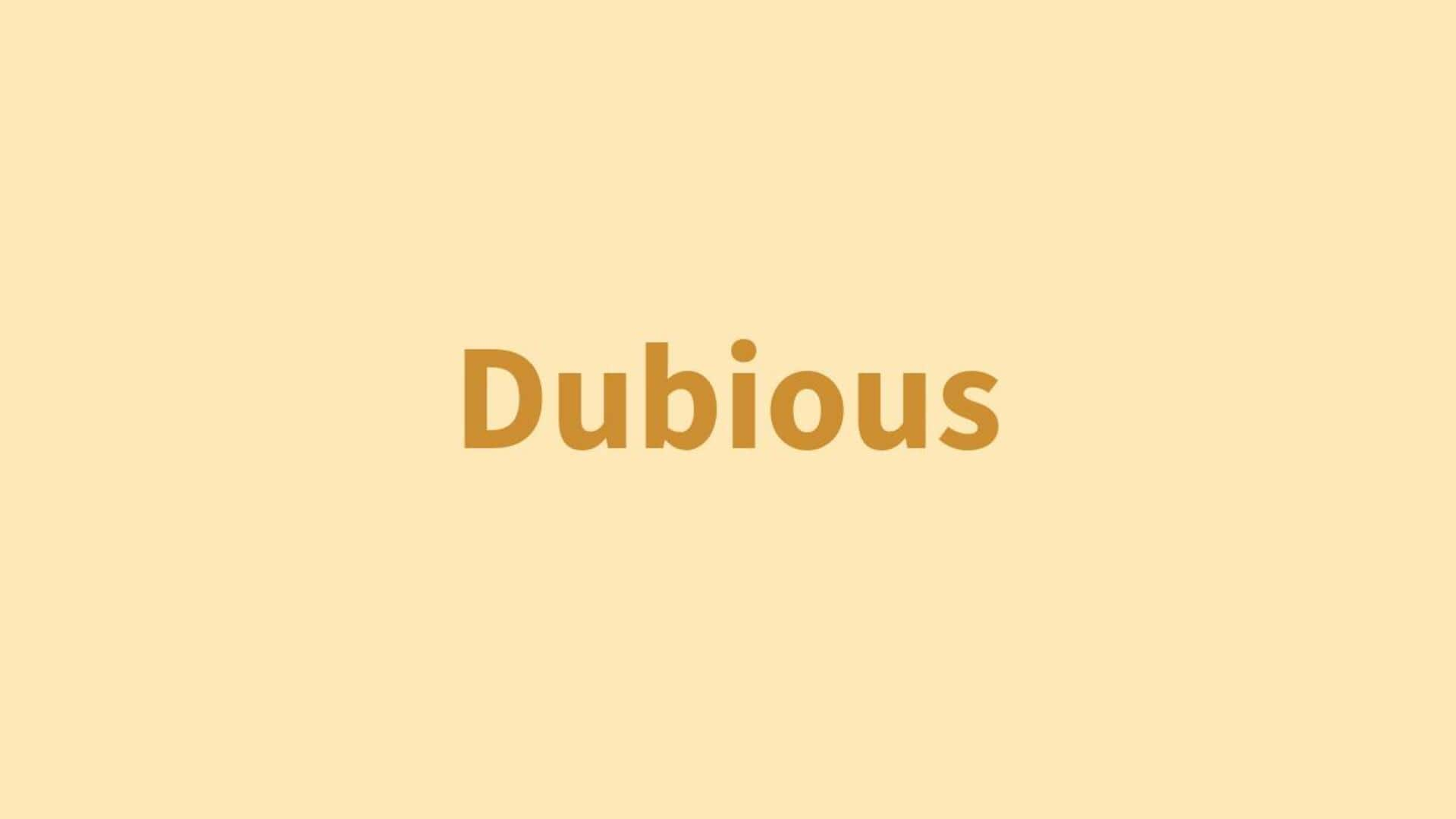
Word of the Day: Dubious
What's the story
The word "dubious" is an adjective that describes something uncertain, doubtful, or questionable. It can be used when someone is unsure about a situation or when something seems unreliable. For example, if a deal sounds too good to be true, you might feel "dubious" about it. The word is often used to express skepticism or hesitation.
Origin
Origin of the word
"Dubious" comes from the Latin word dubiōsus, which means "doubtful" or "wavering in opinion." It is related to dubium, meaning "doubt." The word entered the English language in the early 17th century and has since been used to describe uncertainty, skepticism, or suspicion about something.
Synonyms
Synonyms for 'dubious'
Several words carry a similar meaning to "dubious." Some common synonyms include doubtful, uncertain, questionable, suspicious, and skeptical. Each of these words can be used depending on the situation. For example, skeptical implies disbelief, while questionable suggests something may not be entirely true or reliable.
Usage
Sentence usage
Here are some examples of how "dubious" can be used in a sentence: "She gave a 'dubious' look when he promised to return the money by tomorrow." "The deal seemed 'dubious,' so they decided not to invest." "His 'dubious' excuse for being late didn't convince anyone." "The restaurant had 'dubious' hygiene standards, making customers hesitant to eat there."
Depth
Why use the word
Using "dubious" in writing or speech adds depth to expressions of doubt and uncertainty. Instead of just saying "not sure" or "questionable," "dubious" conveys a more precise feeling of skepticism. It's a useful word for describing things that seem unreliable, suspicious, or uncertain, making your communication more engaging and clear.